Avoiding the Pitfalls of Fake-quity: A Powerful Learning Moment from the 2022 Symposium
CompetencyWorks Blog
In a session at the recent Aurora Institute Symposium, Avoiding the Pitfalls of Fake-quity? Our District’s Journey Towards True Educational Equity with Regional School Unit No. 10 (RSU 10) in Maine, Jamaica Ford read the letter she wrote to the administration of her former school about the racism that she faced as a young Black student in a predominantly white rural school district (see 16:50-21:15 in the recording). It detailed key macro- and microaggressions and racism she faced during her time as a student.
We both found ourselves telling our colleagues and others about this session, each describing it as our most powerful moment of the symposium. We’re incredibly moved, encouraged, and inspired by Jamaica’s dedication to the liberation of oppressed communities. We support Jamaica by standing behind her in the extraordinary efforts she’s made to protect students from marginalized backgrounds and her refusal to compromise on their dignity and value. We wrote this post because we didn’t want to leave it to chance that CompetencyWorks readers might happen upon the recording on their own.
Jamaica is an activist for change and Black Lives Matter. She wrote the letter in June 2020, amidst the global pandemic and following the murder of George Floyd, when she was also leading protests with her community in Portland, Maine, calling for justice and liberation from state oppression.
The ongoing racial trauma Jamaica and her Black friends experienced should not have happened. Jamaica should have been able to go to school and learn without being worried about being casually dehumanized by her peers with little, if any, support from her teachers and administrators. The everyday anxiety of what cutting thing the person next to her could say should not have been on her mind. Her account was harrowing and sobering. We‘re so sorry that Jamaica suffered as a consequence of white supremacy perpetuated by people and institutions.
The Pivot from Fake-quity
Right before Jamaica began describing the horrifying racial violence she endured, we heard from a white man who also grew up in the community and attended the same schools – eventually becoming a principal at the school they both attended. He was vulnerable, and shared his experience of growing up in abject poverty. As a young adult and aspiring educator, he originally resented and denied the concept of white privilege, but that changed. We also heard that he didn’t understand the severity of the racial violence until reading Jamaica’s letter, when he was already a principal. Their contrasting realities in the same place highlight that students too often have completely different experiences based on their identities.
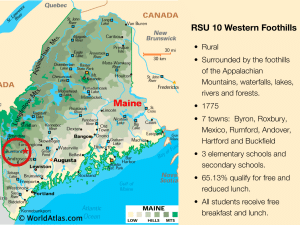 Despite their stated commitment to equity and their mission “to create a safe place where all students can learn,” until the administration received Jamaica’s letter, they thought they were creating a supportive community for all of their learners, including their non-white students. After receiving and processing the letter, RSU 10 leadership embarked on a new chapter in their equity work. They describe their shift from doing “fake-quity” – or fake equity that shows up as talk without action” – to deeper, more honest equity work in action. In the session, the presenters were clear that they are still learning, and that their equity work will require more work and sustained commitment.
Despite their stated commitment to equity and their mission “to create a safe place where all students can learn,” until the administration received Jamaica’s letter, they thought they were creating a supportive community for all of their learners, including their non-white students. After receiving and processing the letter, RSU 10 leadership embarked on a new chapter in their equity work. They describe their shift from doing “fake-quity” – or fake equity that shows up as talk without action” – to deeper, more honest equity work in action. In the session, the presenters were clear that they are still learning, and that their equity work will require more work and sustained commitment.
As they worked to reopen schools, the administration embarked on a model of shared power to bring about change and create a more equitable learning community. They invited people to join a district-wide equity committee (see 24:40 in the recording). Students, central office and building based administrators, teachers, students, school board members, and others including custodians, parents, counselors, and ed tech specialists joined and worked with support from the Great Schools Partnership. A key part of the work focused on listening and learning to the experiences of racial violence and to explore what racial justice could look like. One tangible outcome of the equity committee was the creation of a new RSU 10 Equity Statement: “At RSU 10, it is our collective responsibility to create and maintain a safe space for all students, families, and staff. We are committed to elevating marginalized voices in order to grow and learn, and to become an anti-racist and anti-biased learning community.”
Later in the fall of 2020, they offered a student equity summit to support student learning and awareness of key equity issues, including racial justice and gender identity. That first year, 12 middle school students participated, and the following year participation increased to 70 middle and high school students. Jamaica participated in the summit to talk with students and sit alongside students learning in community. The high participation of community members in the district and their willingness to accept that their understanding of racial violence was limited made it possible for the general attitude of the district to change.
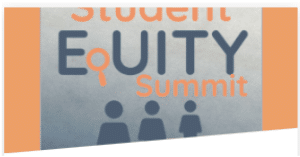
The district offers ongoing professional development for all staff members to make space for adult learning. The community has adopted practical shared routines to build awareness and make learning a regular part of interaction for members of the district. For example, several schools have adopted an “Ouch/Oops Framework,” which offers a way for someone to point out harmful or potentially harmful language in the moment (see 36:20 in the recording). The work has not been without challenges, but the team is working through resistance and new issues as they emerge.
Don’t Wait Until You Get a Letter
Personalized, competency-based education (CBE), as we envision it, demands an effort to transform away from structural racism in our institutions. The deeper equity agenda of CBE can be realized only if we as a field commit to uncovering and addressing inequities and indignities that too many students experience in schools. We cannot wait for the bravery of a student to write a letter, as Jamaica did. CBE as an equity strategy requires building a culture where we listen to students (and alumni, families, and others with less positional power). It requires us to reflect on our own biases and blindspots proactively.
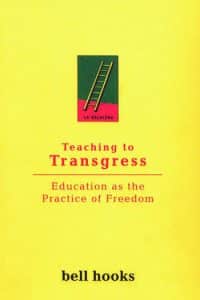 The practice of personalizing learning and caring for students isn’t new; as historically reiterated and upheld by many Black feminist scholars, educators have a responsibility to approach students with sensitivity and care. For example, Dr. Anna Julia Cooper and Nannie Helen Burroughs were scholars and educators in the late 19th century who proposed philosophies of education rooted in the well-being and agency of their students. Both of them felt an obligation to students from their communities; they taught in a way that was informed by their shared experiences and guided by their intentions for liberation. An example from more recent times is Teaching to Transgress, a book of essays in which bell hooks invites educators to see education as a means for learners to develop agency and freedom. Educators that truly wish to address and change oppressive social structures must teach with compassion and hold the well-being of students from marginalized backgrounds at the forefront of all their decisions and actions.
The practice of personalizing learning and caring for students isn’t new; as historically reiterated and upheld by many Black feminist scholars, educators have a responsibility to approach students with sensitivity and care. For example, Dr. Anna Julia Cooper and Nannie Helen Burroughs were scholars and educators in the late 19th century who proposed philosophies of education rooted in the well-being and agency of their students. Both of them felt an obligation to students from their communities; they taught in a way that was informed by their shared experiences and guided by their intentions for liberation. An example from more recent times is Teaching to Transgress, a book of essays in which bell hooks invites educators to see education as a means for learners to develop agency and freedom. Educators that truly wish to address and change oppressive social structures must teach with compassion and hold the well-being of students from marginalized backgrounds at the forefront of all their decisions and actions.
Personalized learning within a CBE model demands that we listen to students and offers a sustainable and adaptive way to design to meet their needs; it demands that we treat them with dignity. Students should be able to trust that they will, at a minimum, be heard and valued when they come to school. Knowing each student and their unique needs allows us to support students who are harmed by the traditional school model. Being responsive and flexible to students’ needs is a way to truly care for and model healthy relationships for them. Equity work is necessary for personalized, competency-based learning design. Together they form an integrated approach to transform learning systems.
Resources to Renew or Revamp Your Equity Commitment
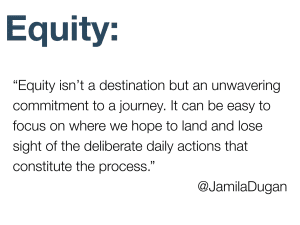
The Aurora Institute advocates for personalized, CBE models that we believe can be a part of the solution. The resources offered here can be one support to making those models come to life to sustain change. Yet, we also want to acknowledge the depth of the work that must happen for systemic transformation to equitable schools – and an equitable world. That work begins with our personal journeys and mindsets, and builds through our interpersonal and organizational transformations. As a small non-profit operating within the existing systems, we also are on our own journey and hope we are contributing to a robust and inclusive CBE movement focused on creating equitable systems.
Below, we highlight a few resources for reflecting on equity, surfacing equity challenges, and learning from student (and community) experience.
- The session presenters offered this handout with Additional Resources for Avoiding the Pitfalls of “Fakequity”.
- The district also uses two equity-centered resources: Indicators of Educational Equity to provide concrete strategies on what real equity looks like, sounds like, and feels like, as well as Elements of Effective Instruction to center their ongoing professional learning activities for equity centered curriculum and instruction
- The recent CompetencyWorks report, Teachers Making the Shift to Equitable, Learner-Centered Education: Harnessing Mental Models, Motivations, and Moves explores the learning science research behind how we learn and shift our mindsets and behaviors, with a focus on applying these ideas to changing teacher practice in pursuit of equity. In particular, the Professional Learning Exercises accompanying the report offer an example for approaching the change process in ways that integrate equity work and pedagogical practice. The companion blog post, Sabotage! How Our Implicit Biases and Mental Models Keep Us From “Walking the Talk,” echoes the themes in the RSU 10 story.
- The book, Street Data: A Next-Generation Model for Equity, Pedagogy, and School Transformation, by Shane Safir and Dr. Jamila Dugan offers an approach to school transformation based on “street data” and a reimagined approach to data analysis. Jamaica’s letter fits the definition of street data. Building from the people in the community, street data can range from student and family stories to student work artifacts from open-ended performance assessments to observations and artifacts from educators and classrooms. While the book does not explicitly espouse a competency-based approach, the authors’ beliefs and practices resonate with Aurora’s CBE definition. A few shared points include the idea that agency is a primary goal, that we want to infuse an equity lens and mindset in all aspects of the system and culture, and that the pathway to implementation is contextual and local to each community. There is also a new podcast inspired by the ideas of the book.
- The collection of resources in the blog post, New Educational Equity Resources to Transform Schools and Systems, originated from one of the Aurora Institute’s annual field coordination calls. The overview includes resources on inclusive school redesign, diversifying the educator workforce, and transforming assessment and accountability systems.
- In the blog post, Designing Equitable and Culturally Responsive Learning Spaces, Karla Vigil and Emily Abedon, CEO and consultant for the Equity Institute, discuss culturally responsive teaching, placing student voices and identities at the forefront of our work, and actionable strategies to build an equitable education system. For further reading, this bibliography of Culturally Responsive Pedagogy offers a collection of resources that complement implementation of CBE.
We invite you to continue to learn from the Aurora Institute Symposium session recordings and to share your equity learning journey with the wider CBE community. We will be learning alongside you!
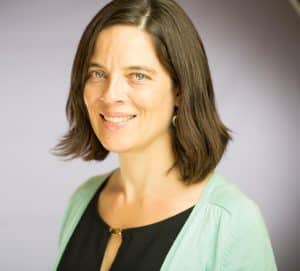 Laurie Gagnon joined the Aurora Institute in 2022 as the organization’s CompetencyWorks Program Director where she leads the work of sharing promising practices shaping the future of K-12 personalized, competency-based education (CBE). Her work includes identifying trends; conducting and facilitating research to answer critical questions facing the field; and disseminating those findings widely. Laurie began her professional life teaching English in Japan and high school history in the U.S. She lives in Somerville, MA with her partner, young son, and cat.
Laurie Gagnon joined the Aurora Institute in 2022 as the organization’s CompetencyWorks Program Director where she leads the work of sharing promising practices shaping the future of K-12 personalized, competency-based education (CBE). Her work includes identifying trends; conducting and facilitating research to answer critical questions facing the field; and disseminating those findings widely. Laurie began her professional life teaching English in Japan and high school history in the U.S. She lives in Somerville, MA with her partner, young son, and cat.
 Maisha Maliha joined the Aurora Institute in July 2022 as the Programs Intern. She assists with the design, implementation, and execution of the annual Aurora Institute Symposium. She is devoted to promoting equitable education and supporting students from marginalized backgrounds. Maliha is a senior at Georgetown University studying History and Art History. At Georgetown, she was the student assistant for the Program in Education, Inquiry, and Justice at Georgetown College for two years.
Maisha Maliha joined the Aurora Institute in July 2022 as the Programs Intern. She assists with the design, implementation, and execution of the annual Aurora Institute Symposium. She is devoted to promoting equitable education and supporting students from marginalized backgrounds. Maliha is a senior at Georgetown University studying History and Art History. At Georgetown, she was the student assistant for the Program in Education, Inquiry, and Justice at Georgetown College for two years.